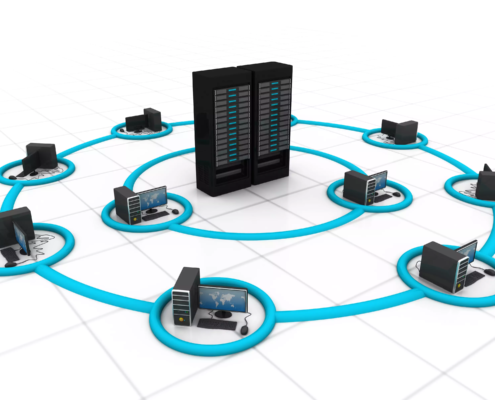 https://www.teamipro.com/wp-content/uploads/2023/08/cloud-computing-effeciency.webp
800
1200
Pat Anunciacion
https://www.teamipro.com/wp-content/uploads/2023/07/IPRO.png
Pat Anunciacion2023-08-25 15:36:112023-11-29 16:47:20How Does Cloud Computing Improve Business Efficiency
https://www.teamipro.com/wp-content/uploads/2023/08/cloud-computing-effeciency.webp
800
1200
Pat Anunciacion
https://www.teamipro.com/wp-content/uploads/2023/07/IPRO.png
Pat Anunciacion2023-08-25 15:36:112023-11-29 16:47:20How Does Cloud Computing Improve Business EfficiencyNetwork security is a critical aspect of any organization’s computer system. It protects networks, systems, and data from unauthorized access, misuse, and destruction or alteration. Network administrators use various techniques to secure their networks, including antivirus software, firewalls, intrusion detection systems (IDS), access control lists (ACLs), encryption methods, and virtual private networks (VPNs).
Antivirus software can be used to detect and block malicious files or programs before they enter the network. Firewalls are designed to prevent unauthorized inbound connections and filter out any traffic that is deemed dangerous or inappropriate. Intrusion detection systems monitor the activities on a network for suspicious patterns that may indicate an attack, such as a denial of service attack. Access control lists can be used to specify which users or systems have access to certain parts of a network.
Encryption methods provide an additional layer of security by scrambling data that is sent over a network so unauthorized parties cannot read it. Virtual private networks (VPNs) enable secure remote connections between two networks. VPNs are especially useful for companies that need to enable their employees to access the corporate network from home or other locations outside the office.
Network administrators must also implement policies and procedures that protect networks from internal threats such as disgruntled employees, negligent users, and malware infections spread through email attachments or malicious websites. Such policies may include user authentication, password requirements and expiration dates, software patching and updating, and data backup procedures.
Organizations should also use monitoring tools to check the status of their networks and detect any anomalies that may indicate an attack or other security breach. Regularly scheduled tests can reveal weaknesses in a network’s defenses that can then be addressed before an attack occurs.
Network security is an ever-evolving process as attackers continually find new ways to gain access to systems. Organizations can minimize risks and keep their networks secure by staying abreast of new threats and implementing the appropriate safeguards.
Why Is Network Security Critically Important for Businesses?
Network security is critical for businesses of all sizes, and in today’s digital world, it’s never been more important. With the amount of data companies collect and store on their networks, they need to ensure it’s secure from malicious actors. A breach can lead to the theft of sensitive information like customer credit card numbers, intellectual property (IP), or any other confidential business data. It could also result in legal issues depending on the type of data that was stolen.
A strong network security system can help protect against cyber attacks such as malware and phishing attempts. Malware is malicious software designed to damage or disable computer systems, while phishing involves an attacker attempting to gain personal information through deceptive emails. By having a reliable security system in place, businesses can prevent these types of attacks from infiltrating their networks and causing damage.
Effective network security is also essential for protecting against insider threats. Companies need to have systems in place that monitor user activity and detect any suspicious behavior. This includes things like unauthorized access to confidential data or attempts to gain privileged access to certain parts of the network. Having these types of measures in place can help catch internal attackers before they are able to cause any real damage.
Finally, good network security helps ensure compliance with industry regulations such as GDPR and HIPAA. These laws dictate how companies must protect their sensitive customer data, so organizations need to make sure their networks are secure and compliant.
Overall, network security is essential for any business that wants to protect itself against malicious actors and remain compliant with regulatory standards. From malware protection to insider threat detection, there are many steps businesses can take to ensure their networks are secure. Companies should make sure they’re up-to-date on the latest security trends and invest in a reliable network security system to keep their data safe.
Network security is critically important for businesses of all sizes. Cyber criminals can easily exploit unprotected networks and put your business at risk of data breaches, malware attacks, and other malicious activities. Investing in a comprehensive network security solution is the best way to ensure the safety of your data and keep your business secure. If you want to learn more about why network security is critically important for businesses, contact us today.
 https://www.teamipro.com/wp-content/uploads/2023/08/cloud-computing-effeciency.webp
800
1200
Pat Anunciacion
https://www.teamipro.com/wp-content/uploads/2023/07/IPRO.png
Pat Anunciacion2023-08-25 15:36:112023-11-29 16:47:20How Does Cloud Computing Improve Business Efficiency
https://www.teamipro.com/wp-content/uploads/2023/08/cloud-computing-effeciency.webp
800
1200
Pat Anunciacion
https://www.teamipro.com/wp-content/uploads/2023/07/IPRO.png
Pat Anunciacion2023-08-25 15:36:112023-11-29 16:47:20How Does Cloud Computing Improve Business Efficiency
Network Monitoring Stops Problems in Their Tracks



